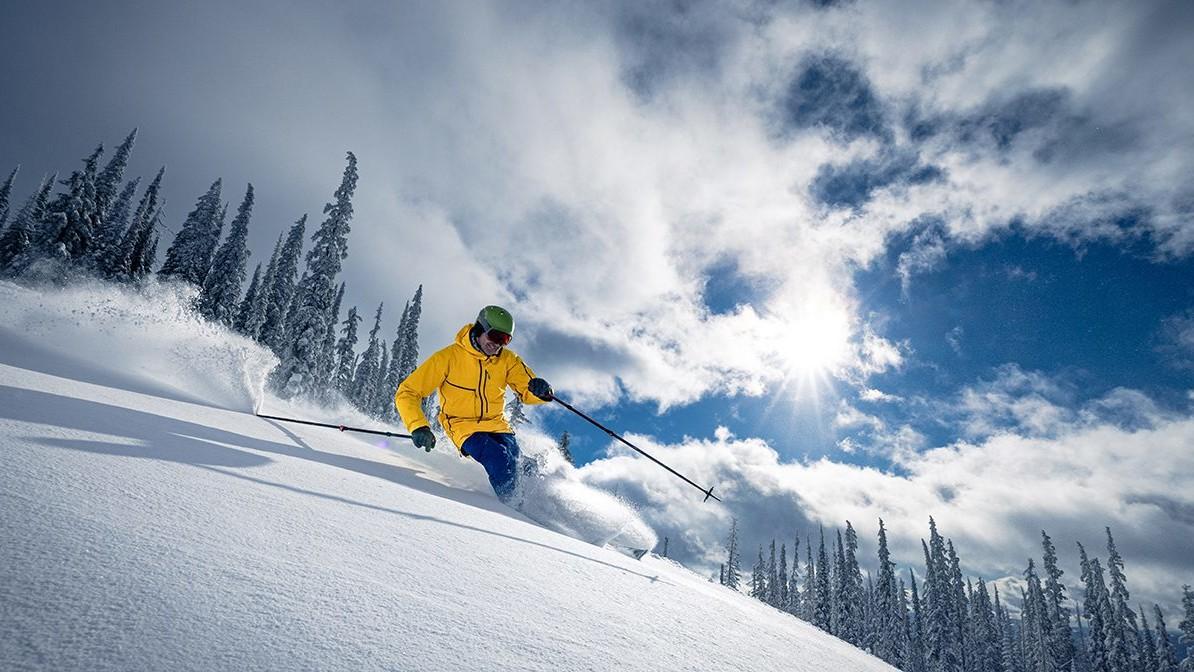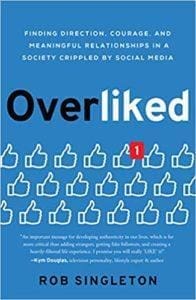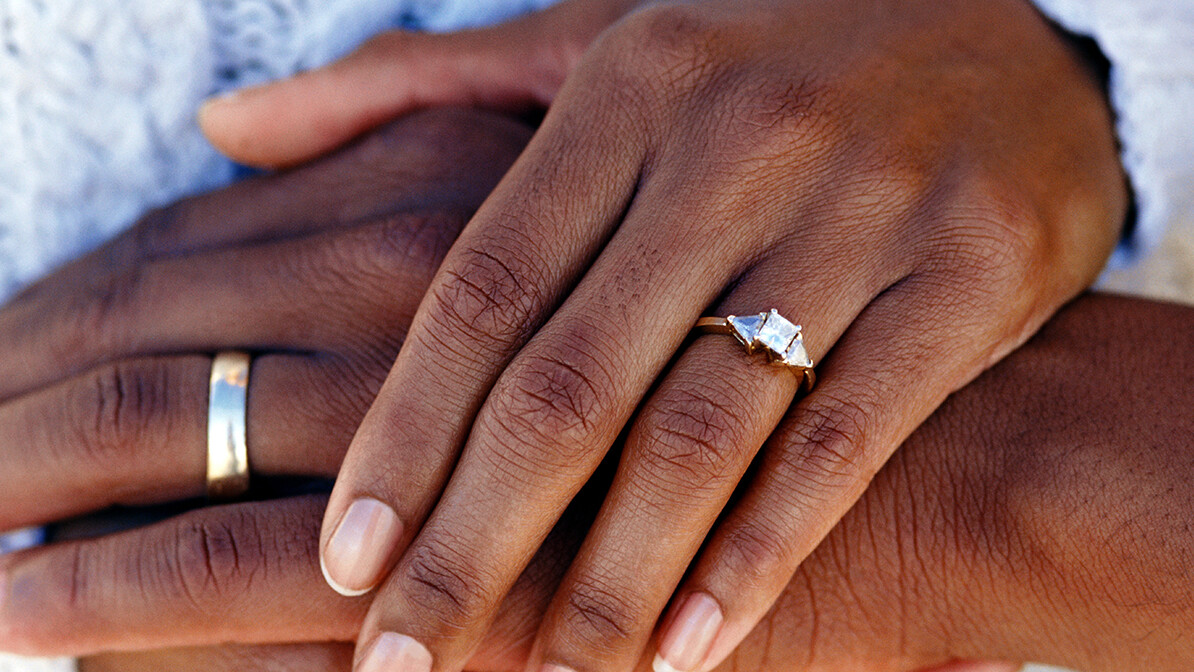- Home
- Relationships
- What Is Real?

What Is Real?
 Excerpt taken from Overliked: Finding Direction, Courage, and Meaningful Relationships in a Society Crippled by Social Media by Rob Singleton
Excerpt taken from Overliked: Finding Direction, Courage, and Meaningful Relationships in a Society Crippled by Social Media by Rob Singleton
Chapter 1
What Is Real?
I’m racing full speed, trees blurring past on both sides, wind cutting across my face. I’m sure it’s the fast I’ve ever skied. I schuss down the hill to the bottom, where I set an edge and swerve to stop in a spray of snow. I grew up downhill racing from age 16 to 18, and I know from the feel how fast I was going. I am pretty sure this was my most epic run. Okay, at least in the last 10 years. The stop wasn’t all bad either. I pull off my goggles and catch my breath, furtively glancing to see if anyone saw what I just did, instinctively looking for phones in people’s hands. I also throw together a few quick thoughts in my head for the obligatory and ever so humble “Who me?” speech sure to be requested.
Standing there, catching my breath, I’m thinking, Man! Did I just do that? This had to be my best run in years. Then, after I look around, I’m thinking, Are you kidding me? No cameras? Then I spot him, one teenager clapping his hands, stopping to motion to me, then clapping his hands again. I pull off my earbuds to hear what he wants. He says, “Dude, you were shredding!” And I say what we would all say in that situation, “Did you video it?” Nope.
Elation turns to disappointment, and I head over to the lodge. Inwardly, I’m trusting that one of my friends or family saw me on the run. But no one did. Not even a shaky GoPro validating my awesomeness. I’m alone in my awesomeness. Why didn’t I get that kid’s name and number? I would have paid him to come by my table that night at dinner and say, “Wait! Aren’t you that beast that destroyed Breckenridge today?!” Instead, that night at dinner, I had to say it myself, and it lost all effect. My family had to take my word for it, and now you do too. Please believe me. I went fast.
Two days later, I’m on a much smaller run with slushy snow. I turn to look at my son and … My. Ski. Stops. One minute I am upwardly mobile, the next I am upwardly gazing. Freak dumb rookie accident. I’m moaning in pain as I grab my leg. What just happened? I look around for help and also … to see if anyone saw me. Did anybody video that? The thought is a little ego-shattering. I see someone with a phone in his hand, but I’m not sure if the camera is on. Then I realize he’s calling the ski patrol. Ski patrol! In no time flat, I’m being carried down the hill. On a stretcher! You know what I’m thinking: If anyone catches this, it’s never getting posted. I refuse to be reduced to a name! Or worse, a gif!
These days, cameras are pointed at all of us, everywhere—from grocery stores to signal lights to strangers in crowds. I’m a professional guy who is secure in my identity, with a family and a big enough circle of friends to feel loved even when I do something dumb. So if being “liked” or “videoed” or “shared” can still inflate or deflate me, what does it do to the people who have all their digital “friends”—and enemies—watching and commenting about them on social media all the time? Are we really more concerned with how we perform virtually than in real life? For many of us, the unfortunate answer is yes.
Social media blunders can be devastating. That ski fall tore my ACL, but at least my image, my identity, and my self-respect stayed intact. What do you do if they don’t? What if your mood rises and falls according to those images and interactions that appear after the fact? There should be a vaccine against the deflation of our own attitudes, a cure for negative reactions when online “relationships” turn ugly. And there is …
Getting Real about Connection
“I enjoy feeling lonely, disconnected, and unloved,” said no one ever.
In a world divided by economics, political views, and gender roles, there are a few foundational truths that we can all agree on. Love is life-giving. And authentic relationships matter greatly. Almost everyone would agree to that.
The connection with those whom we love shapes everything from our self-confidence to our grade point average. In a survey of over 20,000 adults ages 18-64, rating the most important aspects of life, the top two answers were (1) friends and family and (2) a happy relationship.¹ At the core of our being, we long for solid ties, love-filled relationships, and lifelong friendships. We need each other. Our ability to connect with those around us defines how we see ourselves, how we succeed in our work, and how we feel about life.
The problem is, in this age of instant, global connection, we are somehow becoming more and more disconnected. It is becoming increasingly difficult for people to be themselves and reveal what’s really going on in their lives. To a large degree, this is because the lines are being blurred between real and authentic and what’s politically correct and preapproved to say out loud or even online. Our ability to engage with those around us seems to be faltering. It is becoming easy to confuse the notion of being “connected” with being in actual relationship.
As a global village, we are certainly more networked. Well over 60 percent of the world’s population has cell phones.² But we are also more isolated. Oddly, the generation that was all but born with a device in their hand is feeling this isolation more than previous ones. While 90 percent of millennials engage regularly in social media. 22 percent say they have no friends at all.³ Read that again. Not “few real friends” but “no friends at all.” Well, I guess there’s a silver lining—at least they can still tell the difference. However, that’s hardly comforting in light of the fact that we are creatures of community who lack any kind of real community.
Orthodox Christianity teaches the biblical truth that God is one with three distinct personalities—the Father, Son, and Holy Spirit. It’s called the Trinity. In the first book of the Bible, Genesis, we also learn that humankind was God’s crowning achievement. He said in Genesis 1:31 that it was “very good.” Back up a few verses and we see why. In Genesis 1:27 it says, “So God created mankind in his own image. …” And what is one of the main things about the image of God? That he is one God in three persons. In other words, community.
Let me put this another way. We were made for community by community. The fall from grace marred that image, and ever since there’s been this tension between trying to be our own gods and following the God who made us. And though it would take an entire book just to talk about this one truth (several books, actually), our focus is this one aspect of community. Since we’re made for community and are creatures of community (and BTW, even those who don’t have a Christian worldview accept this reality, as countless psychological studies attest), then it logically follows that a constant and deliberate effort to isolate ourselves both virtually and physically will ultimately undermine our emotional and spiritual health.
Millennials between ages 18 and 24 are four times more likely to feel lonely “most of the time” compared to people over 70.4 Overall suicide rates dropped steadily until 2007 but have since climbed.5 A letter written by Juli Wilson almost broke the internet after her husband, Jarrid, a mental health advocate, committed suicide.6 Jarrid wrote a tremendous book called Jesus Swagger to challenge readers by asking if they were real or just posing, specifically calling out fraudulent Christians. I have the greatest respect for the man, his family, and his book. I bring up his memory to illustrate that the dilemma about authenticity is real, it’s deadly, and we have to find a way out of its alluring trap.
The rampant disconnection between people and others, even the disconnection people feel inside themselves, underscores a troubling aspect of technology: it is designed to help you go wide but not deep. We’re seeing more and more people who have 500-plus Facebook friends but no one to hang out with on the weekends. We can have 1,000 Instagram followers and yet feel utterly alone.
…
Order your copy of Overliked: Finding Direction, Courage, and Meaningful Relationships in a Society Crippled by Social Media by Rob Singleton
Trending Now
Sign up today for your Inspiration Today Daily Newsletter
Supercharge your faith and ignite your spirit. Find hope in God’s word. Receive your Inspiration Today newsletter now!
Rob Singleton
Rob Singleton, the lead pastor of The Summit Church in Centennial, Colorado, has more than thirty years of experience speaking at churches, conferences, retreats, and camps. Over the years, he has been involved in church planting and was the founding and lead pastor of Impact Church and founding and lead pastor of Southbrook Church, both in North Carolina. Learn more at robsingleton.com
Related Articles
June 27, 2025
Who Is My Neighbor: Bridging the Gap Between Emancipation and Equality (Part 2)
In “Who Is My Neighbor: Bridging the Gap,” we ask what it means to truly see, hear, and love our…
June 24, 2025
It’s All About Love
This excerpt explores the beauty of God’s design for marriage, showing how Scripture reflects His…
June 10, 2025
Freedom in Forgiveness
This excerpt explores the healing process and power of forgiveness in marriage, emphasizing how it…
June 2, 2025
The Mystery of Marriage
This excerpt explores the mystery of marriage as a divine reflection of Christ’s love for the…
Next Steps To Strengthen Your Walk
Inspiration Today Newsletter
Supercharge your faith and ignite your spirit. Find hope in God’s word. Receive your Inspiration Today newsletter now!
Christian Articles
Find articles to strengthen your walk and grow your faith. We have a wide range of topics and authors for you.
Submit A Prayer Request
We are here for you. Simply click on the button below to reach us by form, email or phone. Together we will lift our hearts and voices with you in prayer.





